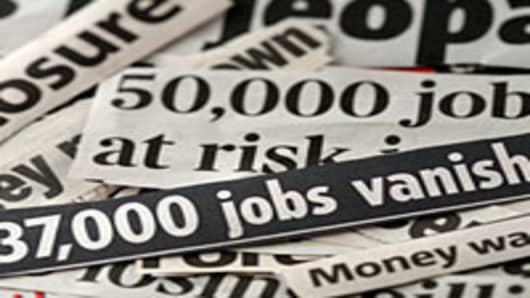The next recession could happen within a quarter of a year, one fund manager told CNBC Tuesday, as weak German economic growth figures were announced.
"What we see is a soft patch and double dip recession risk three months down the line," Beat Wittmann, ceo of Dynapartners, told CNBC.
"The markets are discounting this soft patch, but it could get worse," he said.
"It depends on political decisions and whether companies are investing into expansion and whether consumers are spending."
Weaker-than-expected GDP figures for Germany, announced Tuesday, were greeted with groans from investors ahead of a key meeting between German Chancellor Angela Merkel and French President Nicolas Sarkozy.
Seasonally adjusted growth of 0.1 percent in the second quarter was below the expected 0.5 percent rise, and down substantially from the 1.3 percent recorded in the first quarter.
Germany, the euro zone's largest economy, had staged a relatively strong recovery from the recession, while countries such as Italy and Spain looked more vulnerable. Its key Dax index of stocks fell in early trade Tuesday .
While Merkel's Finance Minister Wolfgang Schaeuble has officially ruled out issuing a eurobond without further fiscal integration in the euro region, it is increasingly being brought up as a solution to the euro zone's debt problems.
The country has also ruled out an EU tax, mooted by European Commission President José Manuel Barroso.
Growth in Germany's traditionally strong exports were outpaced by import growth in the second quarter.
Private consumption and construction investment were particularly weak.
"This comes after the last few weeks of volatility and corrections in capital markets," said Wittmann, who described the German figures as "pretty bad."
"Construction is driven by infrastructure projects, particularly long and medium term projects."
Coming after French GDP for the quarter slowed to zero growth, and trouble elsewhere in the euro zone, the German data could spark another decline in stock markets.
"We are in a post crisis environment. It's really driven by weakening growth levels," said Wittmann.
"Markets are discounting mechanisms and we expect that that is going to continue.





